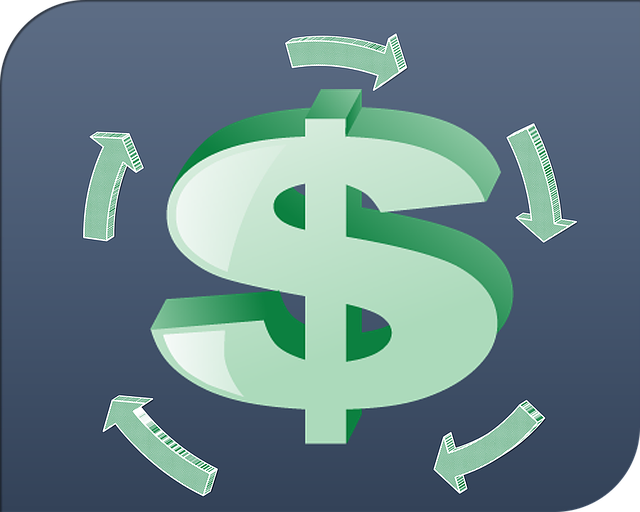What are Cash Flow loans?

Cash flow loans refer to various small business financing options designed to help with cash flow issues. Lenders base loan approval and amounts on a company’s cash flow and business revenue.
Since your projected cash flow is the primary determining factor on credit approval, lenders typically accept lower credit scores and a shorter time in business. Most cash flow loans are unsecured, meaning you don’t have to pledge collateral. However, some lenders will require a blanket lien or personal guarantee in the loan agreement. Personal guarantees allow lenders to come after your personal assets if you default.
Some commercial banks and credit unions offer cash flow loans, but online and alternative lenders are the primary source of these loans. Most online lenders use fintech solutions to analyze your cash flow quickly, streamlining the application, approval, and funding processes.
Small business owners that choose cash flow lending typically need fast funding to cover urgent cash flow gaps. Some common uses of cash flow loan proceeds include:
- Purchasing inventory or business supplies.
- Hiring new employees or funding temp employment contracts.
- Making payroll.
- Everyday expenses like rent, insurance, etc.
- Covering a cash flow gap.
How do Cash Flow Loans work?

A Small business owner applies to a cash flow lender for one of the various loan options. Most cash flow loans carry daily or weekly repayments, although some lenders might offer biweekly or monthly repayments.
There are several forms of cash flow financing.
Short-Term Loans
Short-term loans are a form of traditional term loans, except the repayment terms are shorter, and the loan amounts are typically lower. Small business owners use short-term loans as a working capital solution. Some lenders can underwrite short-term loans based on cash flow, although most use some form of asset-based financing.
Business Lines of Credit
A business line of credit provides an available credit limit from which you can draw funds as needed. You then only repay what you borrowed plus interest and fees. Most lines of credit are revolving, meaning your credit limit replenishes when you repay.
Cash flow lenders offer different amounts, rates, and terms for a line of credit. Business credit lines through United Capital Source have the following features:
- Amount: $1k – $450k.
- Rates: starting at 8%.
- Term: up to 18 months.
- Speed: 1-3 business days.
Merchant Cash Advance
With a merchant cash advance (MCA), borrowers receive a large sum of cash upfront, which is then repaid from a percentage of daily debit and credit card sales. Some lenders use a fixed percentage, while others use flexible terms so borrowers only repay what they can afford. A merchant cash advance from United Capital Source offers:
- Funding amount: $5k – $1 million.
- Factor rates: starting at 1.09.
- Term: 3-18 months.
- Speed: 1-2 business days.
Invoice/Receivables Factoring
Invoice factoring, also called invoice financing, allows you to turn unpaid invoices into immediate working capital. The process requires working with a third-party financial institution called a factoring company. When you factor your invoices, you essentially sell ownership to the factoring company, which issues an advance based on the invoice value, called an advance rate.
Your customers pay their invoices directly to the factoring company, which then sends the remainder to you minus its fees. Invoice factoring through UCS offers:
- Funding amount: $10k – $10 million.
- Factor rates: starting at 1% p/mo.
- Term: Up to 24 months.
- Speed: 1-2 weeks.
Revenue-Based Financing
Revenue-based financing is like a merchant cash advance, except repayment comes from all revenue sources, not just card payments. This makes it an ideal option for businesses that don’t process a high volume of credit or debit card sales.
You receive a large lump sum, which is based on previous revenue. The repayment is either a fixed or flexible percentage of future revenue, with daily or weekly payments. Some lenders might offer monthly payments, but this is rare.
Revenue-based financing through United Capital Source offers:
- Funding amount: $10k – $5 million.
- Factor rates: start at 15 p/mo.
- Term: 3 months – 10 years.
- Speed: 1-2 business days.
How do I qualify for Cash Flow Financing?

Cash flow loan qualifications vary depending on the lender and loan type, but generally speaking, the qualification thresholds are lower than other business loans. Here are the qualifications by loan type at United Capital Source.
Short-Term Loans:
- Credit score: 550+.
- Annual revenue: $75k+.
- Time in business: 6+ months.
Business Line of Credit:
- Credit score: 550+.
- Annual revenue: $75k+.
- Time in business: 6+ months.
Merchant Cash Advance:
- Credit score: 550+.
- Annual revenue: $120k+.
- Time in business: 4+ months.
Invoice Factoring:
- Credit score: 550+.
- Annual revenue: $255k+.
- Time in business: 1 year.
Revenue-Based Financing:
- Credit score: 525+.
- Annual revenue: $120k+.
- Time in business: 6+ months.
How to apply for Cash Flow Financing:

Follow these steps to apply for a cash flow loan.
Step 1: Consider Your Needs
Before you begin the application process, take some time to make sure this is the right product for your individual needs. Will you be able to use the capital for your desired purpose? Is the repayment structure conducive to your cash flow? Do you know exactly how much funding to request?
Answering these questions ahead of time will make the rest of this process much smoother.
Step 2: Gather Your Documents
Documentation requirements vary depending on the cash flow loan you’re requesting. For example, invoice financing will require your A/R and A/P aging reports. A merchant cash advance requires bank statements showing card payments.
Regardless of the loan, expect to provide these basic documents during the application:
- Driver’s license.
- Voided business check.
- Bank statements from the past three months.
- Financial statements.
Step 3: Fill Out the Application
You can begin the application process by calling us or filling out our one-page online application. Either way, you’ll be asked to supply the information from the previous section along with your desired loan amount.
Step 4: Speak to Representative
Once you apply, a representative will reach out to you to explain the repayment terms, interest rates, and terms you qualify for. This will ensure that there are no surprises or hidden fees during repayment.
Step 5: Receive Approval
If approved, funds should appear in your bank account in 1-3 business days, depending on your loan type.
What are the advantages of Cash Flow Loans?

Cash flow loans offer several benefits to a small business owner. The funding helps cover cash flow gaps, take advantage of new opportunities, or expand the business.
Since most cash flow loans come from alternative online lenders, the application process is usually quick and easy. Several online lenders or finance facilitators offer applications you can complete in under five minutes. The streamlined applications also mean fewer documentation requirements.
In most cases, you can get same-day approval and access the funds in 1-3 business days. Same-day funding could be possible in certain situations.
Cash flow loans often offer flexible payment terms. For example, your payment fluctuates with your revenue in revenue-based financing.
Most cash flow loans are unsecured, so you don’t need to pledge physical collateral. This helps protect your high-value business assets or get funding when you don’t have collateral to offer.
What are the disadvantages of Cash Flow Loans?

The tradeoff for fast funding, lower approval requirements, and no collateral requirements is increased cost. Cash flow loans usually have higher rates and fees than traditional business loans. For example, you can expect an origination fee for most cash flow loans
While the payment terms are flexible in some ways, you’re still required to make frequent payments, usually daily or weekly. Keeping up with the payment schedule could strain your cash flow.
While these loans typically don’t have specific collateral requirements, you’re usually still required to sign a personal guarantee. That makes you personally responsible should you default. Some cash flow lenders also require a blanket lien on your business.
Cash Flow Loan Pros & Cons

Pros:
- Provides funding to help support your business.
- Quick and easy applications with minimal documentation.
- Fast funding time, usually within 3 business days or sooner.
- Flexible payment terms.
- Unsecured financing, so you don’t have to provide collateral.
Cons:
- Higher rates and fees than traditional business loans.
- Requires frequent repayment.
- May require a personal guarantee or blanket lien.
Frequently Asked Questions

Here are the most common questions about cash flow loans.
Are Cash Flow loans secured?
In most cases, cash flow loans are unsecured loans, meaning you don’t have to provide collateral. Cash flow lenders base approval and funding amounts on your historical and projected revenue, which differs from asset-based financing.
Can I get a Cash Flow Loan with bad credit?
It is possible to get a cash flow loan with bad credit. In fact, that’s one of the main advantages of this form of financing. Lenders base approval more on your business performance than traditional lending metrics like a credit score. Some lenders still have minimum credit score requirements, typically mid to low 500s.
A word of caution: lower credit scores typically mean higher interest rates. While you can get approval with a bad credit score, you should still try to boost your score to save money on interest.
What’s the difference between Cash Flow Loans & other small business loans?

Cash flow loans are often structured differently, but the main difference is how lenders determine creditworthiness and funding amounts. Lenders examine your assets and credit history with traditional asset-based lending to determine approval.
Cash loan lenders typically look for two main things when deciding on a loan request:
- Does the business have a proven track record of consistent cash flow?
- Is there reason to believe cash flow should remain the same or grow in the future?
Usually, if those two conditions are met, lenders will approve the request. However, lenders take more significant risks with cash flow loans since they don’t use credit history. As such, lenders charge more for this type of financing.
How can I decide on the right Cash Flow Loan for my business?
Deciding on the right loan structure depends on your needs and finances. Here are some tips to help you decide.
Examine Your Needs
Consider why you’re borrowing the money and what business objectives it will help you achieve. Short-term loans make sense if you have a one-time purchase or working capital need. A business line of credit is best for covering unexpected expenses.
Merchant cash advances are good for resupplying inventory to support future card sales. Invoice financing is best when you sell on credit and want to collect on unpaid invoices early. Revenue-based loans are good for seasonal businesses that need help preparing for the busy season or meeting working capital needs during the down season.
Compare Costs
You should also research how much each type of loan will cost and compare it to your cash flow projections. This is also an excellent opportunity to gather the financial documentation you may need for the loan request. You want to determine how much you need, what you can afford, and what option meets both factors.
Determine Your Timeline
If you need urgent funding, you should choose an option that gets you funds the quickest. If you have more time to decide, you can evaluate each option and determine what’s best for you.
Cash Flow Loans – Final Thoughts

Cash flow loans are a viable option for business owners with less than stellar credit who need fast funding. You must decide if the quick funding and lower approval requirements justify the increased cost and if your business can afford it.
Businesses with good to excellent credit that can wait for financing can often find lower-cost options, like equipment financing, long-term loans, and SBA loans. But cash flow loans are short-term financing, so you won’t incur debt for as long as you would with a traditional business loan.
Contact us if you have more questions on cash flow loans or are ready to apply. Our loan executives can help you find the right small business loan for your needs.












More Stories
Sarb hike: 50bps or 25bps?
Funds take record short position across U.S. Treasuries curve: McGeever
Philips buys Israeli co DiA Imaging Analysis